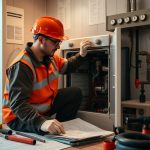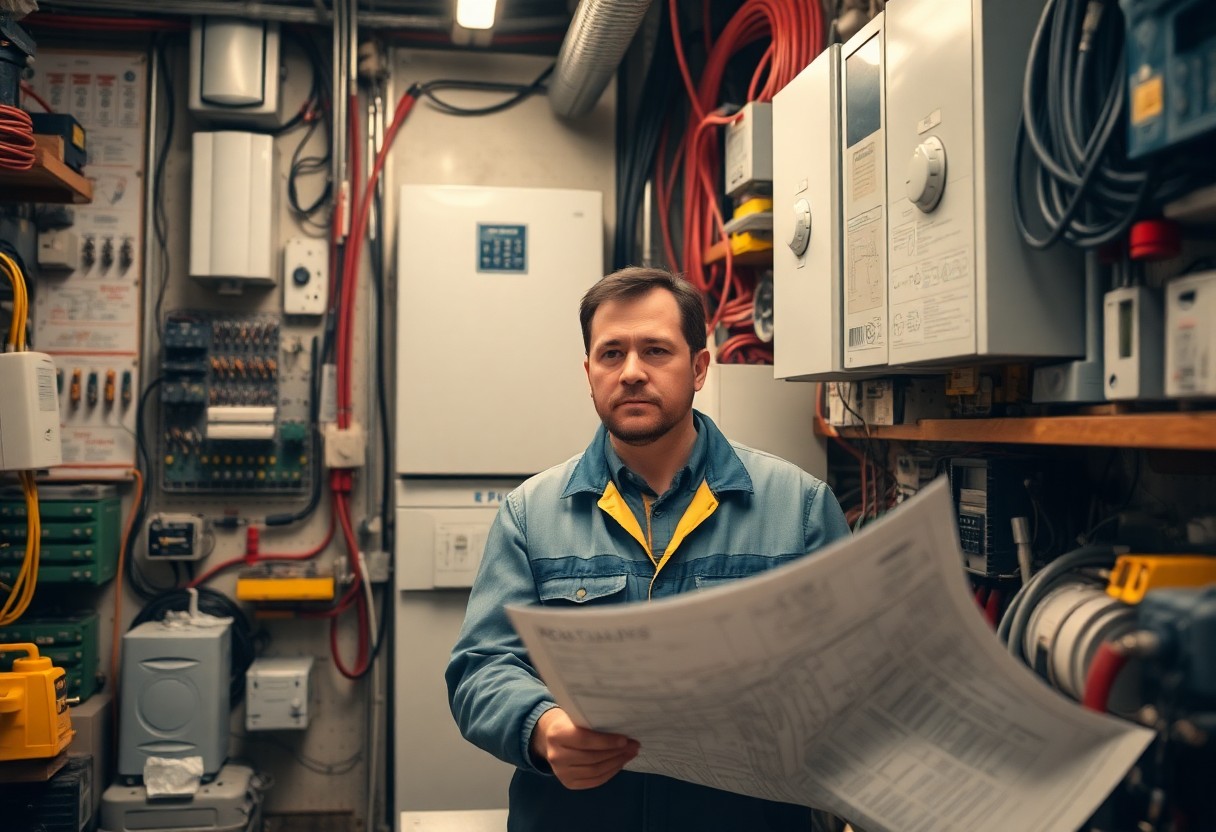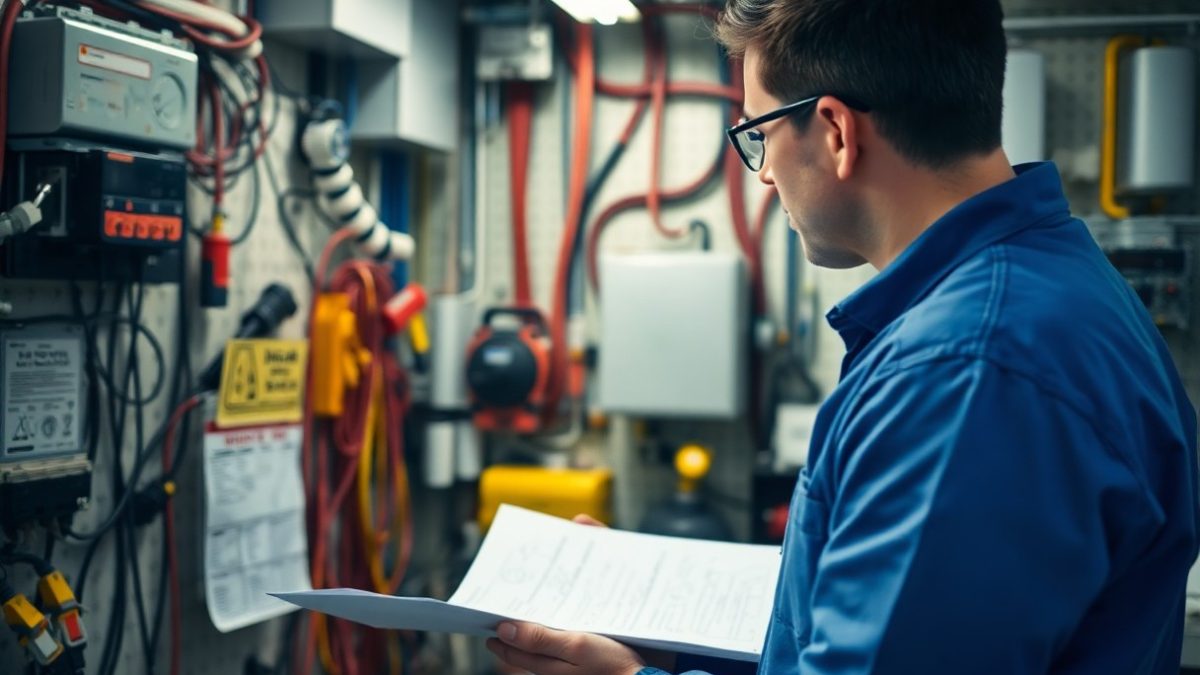
What Singular Considerations Should Be Made For Dual-Fuel Appliance Installations?
November 19, 2024
What Esoteric Techniques Enhance The Safety Of Gas Appliance Installations?
November 21, 2024With the complexity of regulations surrounding electrical appliance installations, it’s imperative for you to understand the requirements that govern this field. Navigating through the maze of local codes, safety standards, and permit processes can be overwhelming, but knowing the right steps can simplify the experience. This blog post will guide you through the necessary considerations, helping you to approach your installation projects with confidence and compliance, while ensuring the safety and functionality of your appliances. Get ready to make informed decisions that will streamline your installation journey.
Understanding Electrical Appliance Regulations
Before you commence on any electrical appliance installation, it’s important to grasp the relevant regulations that govern your project. Familiarizing yourself with these rules will not only ensure your safety but also compliance with local standards, thereby avoiding potential legal penalties and hazards. Regulations can vary based on your location, the type of appliance, and the complexity of the installation. A solid understanding of these guidelines is your first step towards successful project execution.
Overview of Regulations
For efficient navigation of the electrical appliance regulations, you must first identify the applicable codes and standards. These regulations are designed to safeguard both people and property, detailing specifications for the installation, maintenance, and use of electrical appliances. They encompass everything from wiring practices to energy efficiency, allowing you to align your projects with best practices in the industry.
Key Regulatory Bodies
Regulatory authorities play a significant role in establishing and enforcing electrical appliance regulations. These bodies, such as the National Electrical Code (NEC) in the United States or the International Electrotechnical Commission (IEC) globally, set the standards you must follow. Being aware of these organizations and their guidelines is important for legitimate and safe electrical appliance installations.
In addition to the NEC and IEC, other key regulatory bodies may include local building departments and industry-specific organizations that guide installation practices based on your specific needs. These entities also provide resources and training opportunities to help you understand the nuances of compliance. Engaging with these bodies can enhance your knowledge of important standards and practices, enabling you to execute your electrical appliance installations with confidence and adherence to regulations.

Common Challenges in Compliance
Some of the most significant challenges you may face in compliance with electrical appliance installation regulations include understanding the specific requirements outlined by local authorities and ensuring that your installations meet those standards. Moreover, these regulations can differ considerably based on location, making it even more daunting for you to navigate. If you’re looking for accommodations in a region with complex regulations, consider staying at Icarus Apartments – Crete Island Hotels, where comfort and convenience meet compliance insights.
Navigating Local Codes
One of the first steps you need to take in ensuring compliance is to familiarize yourself with local codes that govern electrical appliance installations. Local authorities may have specific regulations based on building types, zones, and safety considerations that you must adhere to. Ignoring these codes can lead to fines, delays, or unsafe conditions, so it is vital for you to research the local requirements thoroughly.
Dealing with Varying Standards
About the varying standards you might encounter, you should be aware that compliance can be particularly tricky when moving across state or local lines. Different regions may exhibit significant discrepancies in standards and practices, which could impact your installation projects. This inconsistency requires you to be vigilant and adaptable, ensuring that you always meet the requirements specific to your project’s location.
Compliance with varying standards is not just an administrative hurdle; it’s a matter of ensuring the safety and reliability of your electrical installations. You may find yourself needing to adapt your approaches and solutions based on the specific regulations in each area, including obtaining relevant permits and certifications. It’s beneficial to engage with local experts who can provide guidance on these standards and help streamline your compliance efforts.
Steps to Ensure Compliance
There’s a systematic approach you can adopt to ensure compliance with electrical appliance installation regulations. Start by understanding your local codes, permitting requirements, and any potential inspections needed. Allocate adequate time to prepare your installation plan, and prioritize safety by selecting the right equipment and materials. Following these steps not only helps you avoid fines and penalties but also enhances the safety and efficiency of your installations.
Research and Preparation
Around your project, invest time in researching relevant local and national regulations that pertain to electrical installations. Familiarizing yourself with these rules will allow you to understand what is legally required and will help you identify any specific permits or inspections required before you begin. Effective research sets a solid foundation for a compliant and successful installation.
Hiring Qualified Professionals
Around your journey to compliance, consider enlisting qualified professionals for your electrical installation projects. Hiring experienced electricians or contractors ensures that the work meets all regulatory standards and safety requirements, reducing the risk of errors that could lead to costly consequences or safety hazards.
Even if you have some knowledge of electrical work, the expertise of qualified professionals can make a significant difference. They are well-versed in local codes and can navigate the complex landscape of regulatory requirements more efficiently. Furthermore, they typically carry liability insurance, which protects you from potential financial loss in the event of an accident or error during the installation process. Engaging skilled professionals ensures peace of mind, knowing that the installations comply with all necessary guidelines.
Importance of Proper Documentation
Many underestimate the significance of proper documentation in electrical appliance installations. Adequate paperwork not only ensures compliance with regulations but also serves as a safeguard against legal and safety issues. When you maintain thorough documentation, you create a clear record of your installations, making it easier for you to demonstrate adherence to standards and protocols in any future inspections or disputes.
Permits and Approvals
Along with ensuring your installation is safe, obtaining the necessary permits and approvals is a fundamental step in navigating the regulations. These documents confirm that your project meets local codes and standards, protecting you from potential fines or legal action. By proactively securing permits, you can confidently proceed with your electrical appliance installations without fear of non-compliance.
Keeping Records for Inspections
Among the many steps you take towards compliance, keeping organized records for inspections cannot be overlooked. Documentation of your installations, permits, and any correspondence with inspectors is vital for smooth inspections and future reference.
This record-keeping not only simplifies the inspection process but also helps in establishing a timeline of maintenance and compliance. By documenting each step, including the installation dates and any modifications made, you create a powerful resource that can defend your work during inspections. This organized approach ensures that you can swiftly produce necessary documents, reducing the risk of penalties and enhancing your reputation as a responsible installer.
Staying Updated with Changes
Your ability to navigate the complex regulations for electrical appliance installations heavily relies on staying informed about changes. Regulations can differ by region and evolve over time, so subscribing to relevant industry newsletters, joining professional organizations, and participating in forums can keep you abreast of new developments. Engaging with governing bodies and safety organizations will also help you remain compliant and ensure that your practices align with the latest standards.
Regular Training and Education
After familiarizing yourself with the basics, it’s vital to pursue consistent training and education opportunities. Attend workshops, webinars, and certification courses to enhance your knowledge of current installations and regulations. This ongoing education will keep your skills sharp and help you understand any shifts in regulations or best practices in the industry.
Utilizing Resources and Networks
Below are several effective strategies you can adopt to utilize resources and networks for keeping informed about regulatory changes. Connecting with others in your industry can provide valuable insights and information. Professional associations often have forums or discussion boards where you can exchange experiences and advice. Networking with peers also allows you to share resources such as study guides or recommended trainers.
And by leveraging these networks, you can gather firsthand information about the latest updates in electrical regulations and best practices. Building relationships with other professionals can take your understanding to the next level, giving you access to a wealth of knowledge that may not be available in mainstream resources. Participating in industry events and trade shows can further solidify these connections, allowing you to benefit from shared experiences and collective wisdom.
Future Trends in Electrical Appliance Regulations
All professionals involved in electrical appliance installations must stay informed about the future landscape of regulations. As global priorities shift, anticipate heightened scrutiny and more robust frameworks to ensure compliance. You’ll find that these trends are often driven by technological advancements and sustainability initiatives aimed at improving safety and efficiency while supporting the transition towards greener practices.
Technological Advances
Future regulations will likely be shaped by the rapid pace of technological advancements in the electrical sector. This means you should be prepared to adapt to new standards that incorporate innovations such as smart appliances and IoT connectivity. By embracing these advancements, you can ensure compliance and enhance the performance of your installations.
Sustainability Initiatives
Above all, growing sustainability initiatives will play a pivotal role in shaping future regulations. As environmental concerns mount, you will need to align with programs that promote energy efficiency and reduce the environmental impact of electrical appliances.
Indeed, as sustainability becomes a priority for regulators, it’s important for you to stay up-to-date on these initiatives. New standards may require appliances to meet higher energy efficiency ratings or use environmentally friendly materials. By understanding these changes, you can not only ensure compliance with evolving regulations but also contribute positively to the environment through your work. Embracing sustainable practices can enhance your reputation while helping customers make more responsible choices for their electrical installations.
Final Words
Upon reflecting on how you can navigate the Byzantine regulations for electrical appliance installations, it becomes apparent that thorough research and diligent planning are key. Ensuring that you stay informed about local codes and permit requirements will facilitate a smoother installation process. Engaging professionals who are well-versed in these regulations can provide additional assurance, mitigating risks of non-compliance. By fostering a proactive approach and utilizing available resources, you will strengthen your understanding and execution of electrical installations effectively.

